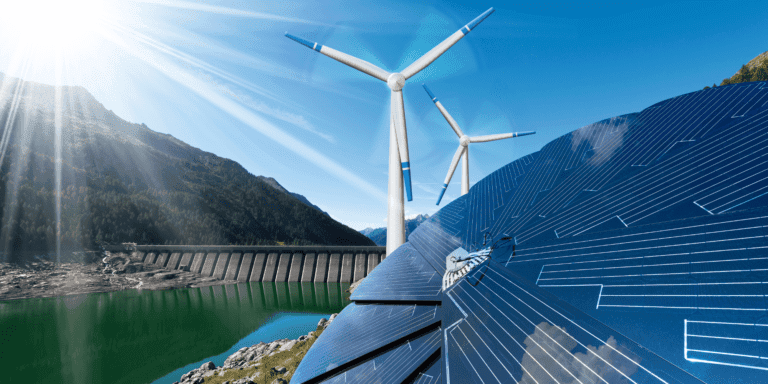In 2023, Morocco took a decisive step in its quest for energy autonomy. With national production reaching 42.38 terawatt-hours (TWh), up 2.3% from 2022, the country successfully covered 96% of its electricity demand, which amounts to 43.95 TWh (+4%). This result, presented in the annual report of the National Electricity Regulatory Authority (ANRE), illustrates the effectiveness of the energy policies implemented.
A coal-dominated energy mix
Despite this performance, coal-fired power plants remain predominant, generating 64% of the electricity produced. However, a 6.6% decrease in this production in 2023 reflects a gradual transition towards more sustainable energy sources.
Renewable energies on the rise
The development of renewable energies is the cornerstone of the national energy strategy:
- Installed capacity: Renewable infrastructures reach 4,618 MW, representing an 11.2% increase in one year, accounting for 40.4% of total capacity and 21.7% of national production.
- Wind energy: With 2,017 MW installed, it contributes to 15.4% of the energy mix and represents 43.7% of renewable energies, recording a growth of 23.2%.
- Solar energy: Its 831 MW installed constitute 7.3% of total capacity and 5% of national production, with potential constantly increasing thanks to ongoing projects.
- Hydropower: Although impacted by water scarcity, this sector remains strategic due to infrastructures like pumped storage systems (STEP), essential for stabilizing the grid.
Regional integration and international ambition
At the same time, Morocco is strengthening its regional role in energy. In 2023, exchanges with Spain reached a net balance of 1,839 GWh, representing 4.2% of national consumption. These collaborations, combined with interconnection projects with Europe, aim to make Morocco a reference energy hub.
Green hydrogen is emerging as a strategic priority, aiming to position the country among global leaders in the production and export of this clean energy. Furthermore, projects for desalination of seawater powered by renewable energies address the water crisis while consolidating the energy transition.
Towards transparent governance
To enhance the attractiveness of the sector, the ANRE plans to introduce new energy tariffs between March 2024 and February 2027, accompanied by a simplified methodology for 2028. In collaboration with the National Office of Electricity and Drinking Water (ONEE), the ANRE continues its efforts for a separation of activities in accounting, a key factor in ensuring fair and equitable pricing.
These advancements, driven by governance focused on transparency and inclusion, confirm Morocco’s commitment to building a sustainable and balanced energy future.


